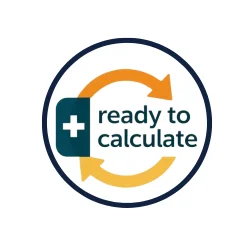Language Learning Time Estimator
Personal Information
Learning Factors
Introduction to the Language Learning Time Calculator
Learning a new language can be a challenging yet rewarding endeavor, and one of the most common questions that language learners have is, “How long will it take me to become fluent?” The Language Learning Time Calculator on this page is designed to help you answer this question. By considering various factors such as your study habits, learning methods, and previous experience, this tool provides a personalized estimate of how long it will take to reach proficiency in your target language.
Understanding how much time you need to invest in learning a new language can help you set realistic goals, stay motivated, and ensure that you are progressing efficiently. Whether you are just beginning your language learning journey or looking to improve your skills, this tool can be an invaluable resource.
Factors Influencing Language Learning Time
Several factors influence how quickly you can learn a new language. The amount of time you dedicate to studying each week is a key determinant—consistent study sessions are often more effective than irregular bursts of effort. The learning method also plays a significant role; immersive learning is typically faster, while self-study may take more time due to fewer opportunities for practice.
Another factor is your previous language experience. If you are learning a language that shares similarities with your native language, the process may be easier and faster. For example, Spanish speakers may find it easier to learn Italian compared to Mandarin. The Language Learning Time Estimator takes all of these aspects into account to give you an accurate estimation.
Benefits of Using the Language Learning Time Estimator
The Language Learning Time Estimator provides a tailored approach to planning your language journey. Instead of relying on vague estimates, you can receive a calculation that is specifically tailored to your study habits and background. This helps in effective planning and allows you to track your progress over time.
Moreover, using this tool can help motivate you by providing a clear timeline, making it easier to set both short-term and long-term learning goals. Knowing how long it may take to achieve a certain level of proficiency can also keep you focused and dedicated to your practice.
How to Use the Tool Effectively
To get the most out of the Language Learning Time Estimator, begin by selecting your native language and the language you wish to learn. Then, enter the number of hours per week you plan to dedicate to your studies. Choose your preferred learning method—whether you are taking classes, studying on your own, or immersing yourself in the language environment. Lastly, indicate your previous experience with language learning.
Once you have entered all the details, the tool will provide an estimated timeframe for reaching proficiency. Use this estimate to set realistic goals and create a study schedule that works for you. Remember that language learning is a marathon, not a sprint—consistency is key!
Conclusion
The journey to learning a new language is unique for everyone, and estimating the time it will take can provide a clear roadmap to success. With the Language Learning Time Calculator, you can create a realistic learning plan that keeps you motivated and on track. Whether you are learning for travel, work, or personal interest, stay committed, and enjoy the process of mastering a new language.
Language learning is not only about time—it is also about persistence, practice, and the joy of discovering new cultures and ways to communicate. Use the estimation as a guide, and remember to celebrate every milestone you achieve along the way.
Frequently Asked Questions (FAQs)
How accurate is the Language Learning Time Estimator?
The estimator provides an approximate timeline based on your study habits, learning methods, and experience. Individual progress may vary, as learning speed depends on many personal factors, such as motivation, access to practice opportunities, and consistency.
Can I speed up the language learning process?
Yes! You can speed up the learning process by increasing your study hours per week, using immersive techniques, and practicing regularly with native speakers. Consistency is key, as is challenging yourself with real-life conversations and media.
How does immersion compare to other learning methods?
Immersion is often considered the fastest way to learn a language because it involves constant exposure and practice in real-life situations. It helps you think in the target language rather than translating in your head, which significantly speeds up learning.
Is this tool suitable for complete beginners?
Absolutely. The Language Learning Time Estimator is designed for learners of all levels. Whether you are starting from scratch or have some prior experience, the tool can help you set realistic expectations for your learning journey.
What if my progress is slower than estimated?
Language learning is different for everyone, and it’s normal for progress to vary. If your progress is slower than estimated, try evaluating your study methods and consider increasing your practice time. The key is to stay consistent and adapt your approach to suit your learning style.

